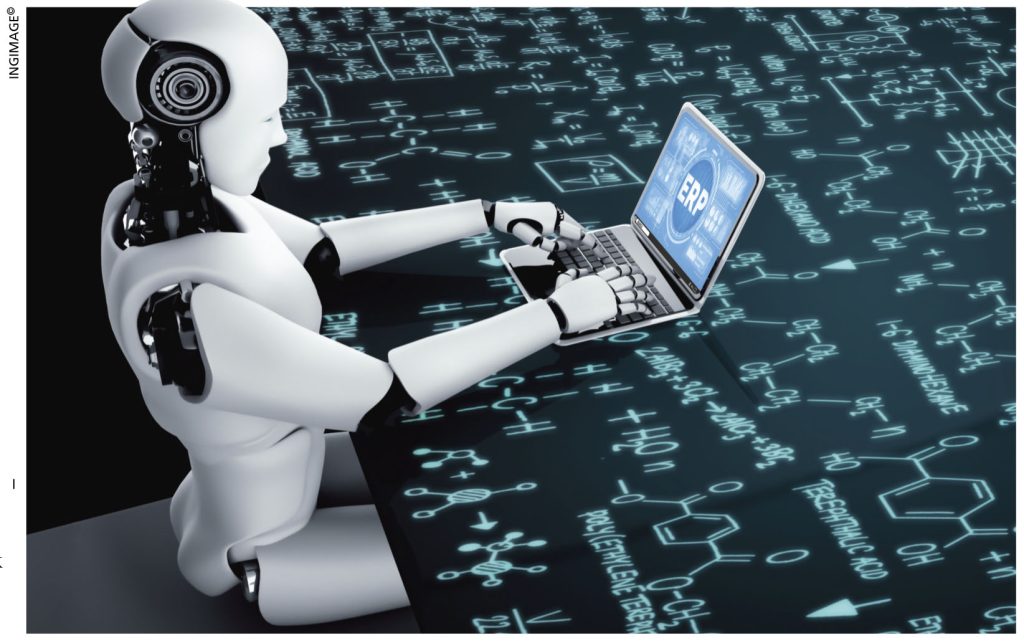AI IN MARKETING
AI is now the backbone of modern marketing rather than a supporting tool. Organisations that thrive will be those that integrate artificial intelligence as a core capability that spans data management, decision making, creativity, personalisation and governance.
Instead of treating AI as an isolated experiment, marketers will soon embed it into the fabric of their operations and redefine how businesses connect with customers.
NEW CUSTOMER FRONTIERS
Sanjeewaka Kulathunga explains why AI is the backbone of modern marketing

One of the main reasons why artificial intelligence driven marketing initiatives fail is weak data foundations. Fragmented, inconsistent or poor quality customer data undermines personalisation, conceals insights and creates risks.
Here are some pointers on this important subject…
EFFECTIVE AI To use AI effectively, businesses must treat data as a strategic asset by consolidating first party information, strengthening data platforms and managing consent transparently.
Predictive models and artificial intelligence strategies only reach their potential when data is accurate, secure and accessible.
As adoption accelerates, the challenge moves from piloting AI tools to scaling them responsibly. Success calls for operational frameworks that ensure models are consistently monitored, tested and updated. Without these safeguards, algorithms drift, accuracy drops and risks grow.
By building rigorous artificial intelligence operations with human oversight, version control and strong governance, organisations can align predictive models such as churn forecasting or customer segmentation with meaningful results.
The most transformative benefit of AI is its ability to personalise at scale. Predictive and generative models now enable businesses to tailor offers, recommendations and experiences to individuals in ways that were once impossible.
Yet, personalisation must remain responsible. While consumers appreciate relevance, they resist approaches that feel intrusive.
ETHICAL CARE Businesses must balance technical precision with ethical care, avoid overstepping personal boundaries, and remain transparent about purpose and benefits. Respecting privacy is as critical as technological sophistication.
Long seen as uniquely human,creativity is also being reshaped by AI. Rather than replacing imagination, artificial intelligence is increasingly acting as a creative partner by generating ideas, testing variations and speeding production, while humans refine tone, preserve brand identity and uphold ethical standards.
The most effective companies connect AI generated content to strategic goals by ensuring that creative output is efficient and impactful. This leads to a balance between speed, scale and authenticity.
Measurement is another crucial dimension. Many businesses rely on vanity metrics that reveal little about performance. The future lies in linking artificial intelligence outcomes directly to business measures such as incremental revenue, profitability and lifetime customer value.
Advanced techniques such as uplift modelling, controlled experiments and marketing mix analytics can uncover what truly drives results. When creativity, personalisation and decision making are linked to rigorous measurement, marketing budgets can be continuously optimised for efficiency and impact.
NEW FRONTIERS Intelligent AI agents represent one of the most promising frontiers. These autonomous or semiautonomous systems can interact with customers, trigger offers, answer queries and coordinate tasks across channels.
Properly applied, they can transform engagement by delivering real-time, scalable and individualised interactions. But they also pose risks that require strict governance. Designing agents with defined permission, transparent logs and clear accountability will be vital to ensuring security and maintaining consumer trust.
Trust will be the cornerstone of AI driven marketing. Consumers are receptive to enhanced experiences when they are transparent, empathetic and clearly beneficial but they resist when interactions feel opaque or impersonal.
Businesses must explain why recommendations appear, provide an easy opt out, and establish audit systems for fairness and accuracy. Trust isn’t a temporary message; it must be embedded in every AI powered interaction. Enterprises that overlook this risk damaging loyalty and long-term relationships.
HUMAN ELEMENT Despite technological advances, the human element remains essential. Artificial intelligence will only reach its promise when marketing teams are empowered to use it effectively.
This requires rethinking workflows, reskilling employees in AI tools, and adopting practices such as creative testing, regular model reviews and human oversight.
And cross functional collaboration between marketing, legal, compliance and data teams is necessary for adoption to remain innovative and responsible.
Creativity is also being reshaped by AI





